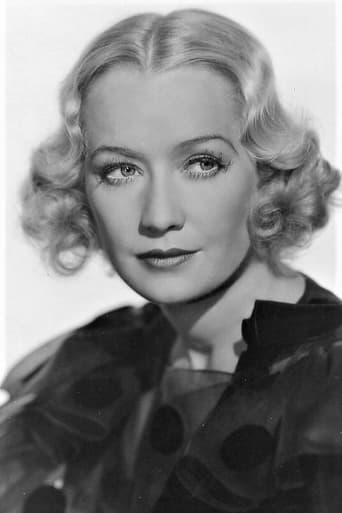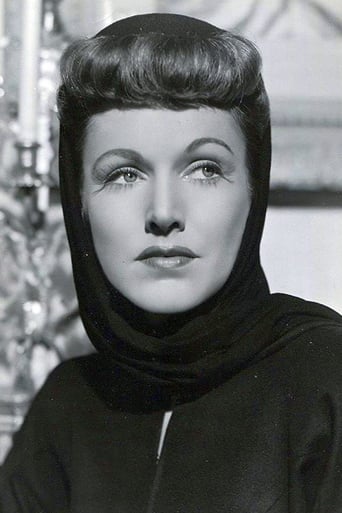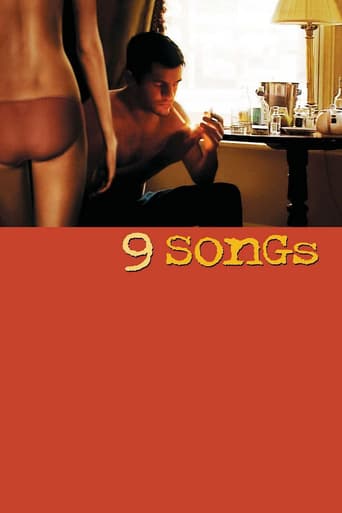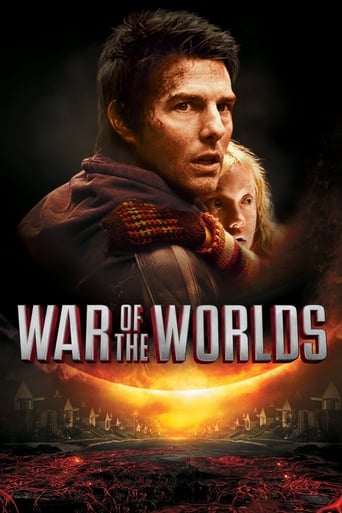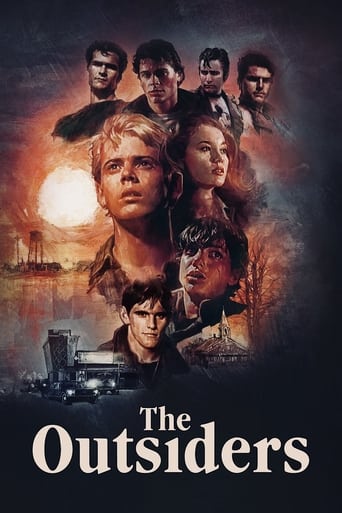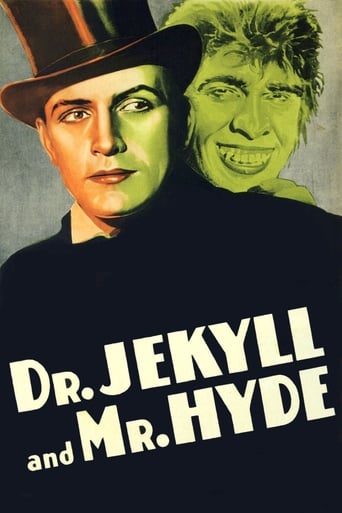
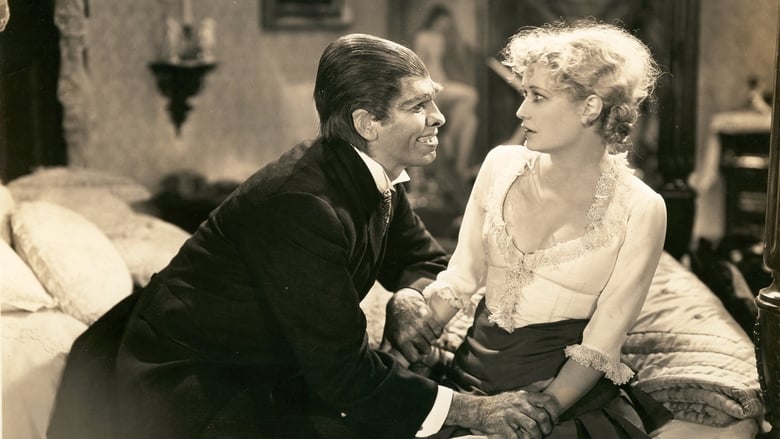
Dr. Jekyll and Mr. Hyde (1931)
Dr. Henry Jekyll believes that there are two distinct sides to men - a good and an evil side. He believes that by separating the two, man can become liberated. He succeeds in his experiments with chemicals to accomplish this and transforms into Hyde to commit horrendous crimes. When he discontinues use of the drug, it is already too late.
Watch Trailer
Cast


Similar titles
Reviews
One of my favorite horror films, everything in this movie is great, the cinematography, the acting, the writing, the characters, the direction, everything, there are some ambitious camera angles, and a great opening.This is a pre-code horror film, so there are some disturbing moments in the film, such as the abuse that Hyde shows to the woman, even some of the violence in the film, but it has a point to it.The movie is about the duality of man, the good side of a man, the one that chooses to do the right thing, the one that chooses to be polite and educated, while the other side its more like an animal, it only follows its primal instincts, the film its surrounded with symbolism about this duality, and what happens if the animal side of a man takes complete control over him.Overall, its a great film, I definitely recommend it.
This take on the classic Robert Louis Stevenson story is classic in its own right, and works on many levels. There's the obvious psychological component to the story, with Jekyll representing the ego/superego, and Hyde the id. We also have the theme of the scientist tampering with nature with an altruistic goal, in this case to rid the psyche of the bad side, become 'super-good', and achieve more, but with a disastrous result that quickly gets out of his hands. But perhaps most importantly, we have the sheer horror of a man unchecked by morality, who is 'free' from constraint, and who promptly rapes, brutalizes, and murders before running off into the foggy London night. He's not an unthinking animal, however – he has all of his cognitive abilities, speaks, and uses logic to elude capture – and this, combined with film sequences that are shot from Jekyll/Hyde's perspective, amplify the fact that this villain is within us all, which is the greatest horror of all.As an aside: isn't it interesting that while Dr. Jekyll clearly contains the two sides of man, the good and the evil, the female characters in the film seem to be neatly one-dimensional: Muriel (his fiancée, 'good'), and Ivy (the dancehall girl, 'bad'). And that after he's taken the potion, he gets darker in addition to becoming uglier and needing some serious orthodontia? But I digress. Frederic March is fantastic as Jekyll and Hyde, and won an Oscar for his performance. He plays the lecher without mercy, and leaps around during some exciting chase sequences. The scene where he shows up in Ivy's mirror after she's been assured by Dr. Jekyll that he's gone for good is frightening. Dr. Jekyll thought he could make that promise before he realized that not taking the potion was no longer sufficient to stop the transformation to Mr. Hyde, and that mere impure thought could now bring it about. It's hard to put the lid back on once Pandora's Box has been opened.Miriam Hopkins shows nice range as Ivy, first absolutely sizzling in a scene where she tries to seduce Dr. Jekyll, a scene ending with her swinging her bare leg from a bed, giving him a serious ravage-me look, responding to his saying he can't return playfully with "oh yes you can", and imploring him to "Come back soon, won't you?....Soon...Come back." Yowza. Later, she's suitably horrified by Mr. Hyde, who does have his way with her, and abuses her without mercy. (she only shows the whip marks to Jekyll, we neither see this happening or the marks themselves but it's enough to make us shiver) That dangling leg is left superimposed on the screen for some time while Dr. Jekyll walks off with a colleague, exclaiming ""Can a man dying of thirst forget water? Do you know what would happen to that thirst if it were denied water?" His marriage to Muriel has been delayed at her father's request; the suggestion is he's sexually frustrated, and after taking the potion, he makes a beeline back to see Ivy.Aside from special effects that are outstanding for the time period, and which hold up well today (particularly the first transformation), the film adds some other nice touches. Dr. Jekyll's organ playing is brief but adds a manic and morbid tone, as the film cuts to a candelabra, a statue, a bust, and a tight shot of his servant's face in succession. At one point, Dr. Jekyll is in the park, hears birdsong, and quotes Keats' 'Ode to a Nightingale' ("thou wast not born for death, immortal Bird! No hungry generations tread thee down ") before seeing a cat advancing along the branch to silence that song. Later, as Hyde strangles Ivy, they slump behind a bed, revealing in the background a replica of Canova's 'Psyche Revived by Cupid's Kiss' which director Rouben Mamoulian leaves us with until Hyde gets back up.The movie has some pretty dark content, but it's asking questions about man's nature, and this version is balanced and moves along well. Definitely a classic.
It's one of the most famous pieces of literature ever written, a genius piece of story telling from the trippy mind of Robert Louis Stevenson. That it has consistently been ripe for film and stage adaptations, and continues to be so since it first surfaced in written form in 1866, is testament to what a devilishly intelligent piece of work it is.This 1931 version, directed by Rouben Mamoulian and staring Fredric March, may not be 100% faithful to the source, but it's arguably the finest adaptation to screen, led by a superb performance from March and featuring technical guile by Mamoulian and his team. It's wonderfully stylish, and coming as it did before the Hayes Code, it's sexy and dangerous, awash with terrifying cruelty, with the subversive and Freudian psychological beats making for a Gothic horror classic.Split personality a go go, inhibitions cast asunder, Dr. Jekyll and Mr. Hyde is priceless. 8/10
Of all the different versions of the Jekyll and Hyde story that I've seen, this is hands down the best. One of three influential horror classics to come out in 1931 and the only one not released by Universal. The other two being Dracula and Frankenstein, of course. Fredric March deservedly won the Academy Award for his performance. That's a rarity for a horror film, then and now. Miriam Hopkins is dynamite as Ivy, a prostitute rescued by Jekyll and later forced to become Hyde's plaything. Ivy's first meeting with Jekyll is one of Pre-Code Hollywood's raciest scenes. Good support from venerable character actors Holmes Herbert and Halliwell Hobbes.It's a visually amazing movie for 1931, with great sets and impressive camera-work. Director Rouben Mamoulian creatively uses virtually every trick in the book to great effect. As much as I love Dracula and Frankenstein, from a technical standpoint this film runs circles around them. The transformation scenes are decades ahead of their time. The makeup for Hyde gives him an apelike appearance that's frighteningly gruesome. Those teeth! Yikes! The script dives headlong into the psychological elements of the Stevenson story that have made it so timeless. The monster in Jekyll is the monster in all of us. Also represented by Mamoulian's use of first-person point-of-view in many scenes, essentially placing the viewer in Dr. Jekyll's shoes. The theme of sexual repression runs throughout the film. The driving force behind Jekyll's taking the formula that transforms him into Hyde is his lust for Ivy and frustration over having to wait ten months to be with his fiancée Muriel.It's a classic, plain and simple. I can only imagine how powerful it must have been to see it in a darkened theater in 1931. It blew me away seeing it for the first time over 60 years later. It grips you from the opening moments and doesn't let up the whole way through. Exciting, atmospheric, and intelligent. A definite must-see.



